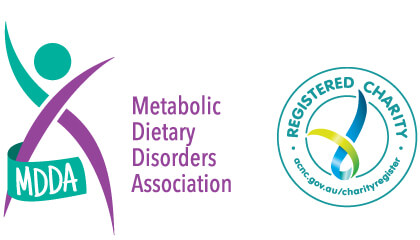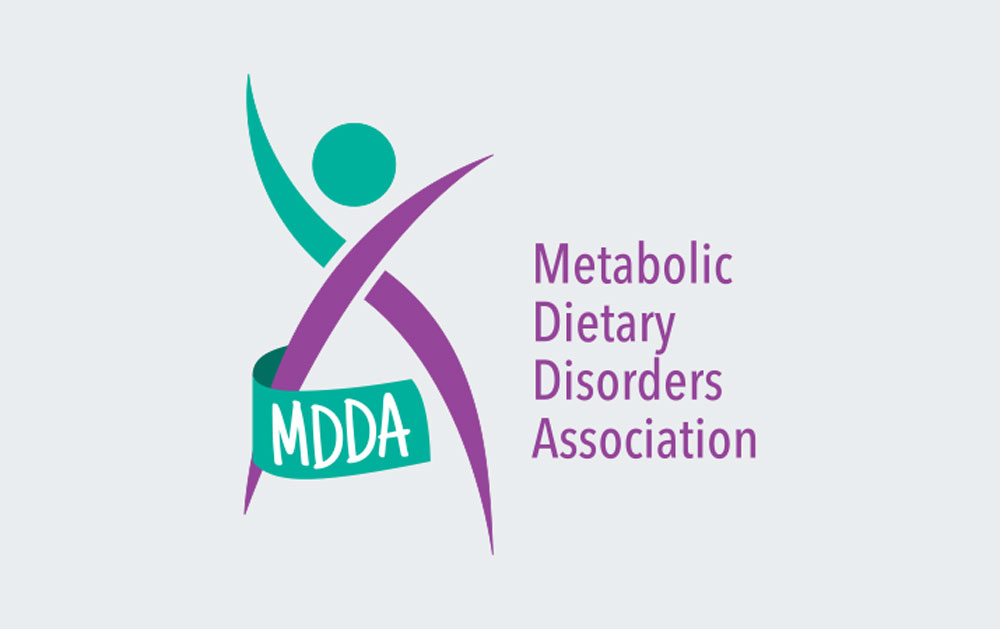BREAKING NEWS
An important win for the Australian PKU Community!
3 April 2023
The Metabolic Dietary Disorders Association (MDDA) is excited to share the long-awaited news that as of 1 April 2023, Kuvan (sapropterin dihydrochloride) is now available on the Pharmaceutical Benefits Scheme (PBS) for the treatment of sapropterin-responsive adults living with hyperphenylalaninemia (HPA) due to phenylketonuria (PKU)! This follows the positive recommendation from the Pharmaceutical Benefits Advisory Committee (PBAC) in July 2022, which found that “sapropterin provides, for some patients, a significant improvement in efficacy over a Phe-restricted diet alone” and acknowledging “there was a high clinical need in a small patient population.”
As many of you know, Kuvan is an oral medicine that was the first prescription medicine to become available for the treatment of PKU. While it was registered for use in Australia by the Therapeutic Goods Administration (TGA) in October 2010 for the treatment of HPA in sapropterin-responsive adult and paediatric patients with PKU or tetrahydrobiopterin (BH4) deficiency, our community has had to wait for many long years to receive subsidised access to Kuvan through the PBS.
It wasn’t until 1 May 2019 that Kuvan was first listed on the PBS for people with PKU aged under 18 years. This was followed by access for people with maternal PKU on 1 July 2021. As a result of the Australian Government’s decision to expand the listing of Kuvan on the PBS, PKU people of any age who are sapropterin-responsive, may now be eligible to access this treatment. This puts affordable access to Kuvan within reach for many, with each script filled at your local pharmacy costing a maximum of $30.00 (for general patients) or $7.30 (for concession card holders).
Your voice matters – Thank you!
MDDA, with the support of our PKU community, has been actively campaigning for a number of years to secure access to this therapy for PKU people of all ages who are responsive to treatment. This outcome would not have been possible without the extensive and ongoing political, media and public advocacy by our PKU and broader metabolic dietary disorders communities.
Thank you to all of you who have continued to share your stories and raise awareness of the challenges of living with PKU and the need for equitable access to all treatments that have been approved as safe and effective by the TGA! We know this can sometimes feel like a thankless task, but please know that your voice matters and has helped us achieve this important outcome.
We were pleased to see the PBAC again acknowledge the PKU patient and clinical community in providing “meaningful consumer support and engagement” through the consumer comments process last year, saying: “The PBAC considered that consumer input was valuable in decision-making in terms of establishing the clinical need for sapropterin by identifying and describing outcomes that were not well-captured in the clinical evidence.”
Importantly, these consumer comments and personal lived experience helped to build the PBAC’s understanding of the impacts of living with PKU, including:
- Difficulties maintaining low Phe levels with dietary management alone, particularly into adulthood.
- The high levels of unmet medical need faced by adults with PKU, and the inequity in treatment access for this group.
- The impact of low Phe levels on quality of life, cognitive function and psychosocial aspects.
Advocating for all Australians living with PKU
This public acknowledgement by the PBAC demonstrates the true power of advocacy.
MDDA supports access to any new treatment that has been found to help manage this serious and rare condition, ensuring the brain health of those living with PKU is protected throughout life. On behalf of all Australians living with PKU, we will continue to work hard to advocate for the need to ensure equitable access to the latest treatments as they become available.
Thank you for your support.
Monique Cooper Louise Healy
President Vice-President
What the expanded PBS listing means
Please speak with your metabolic clinic to ensure you receive the right medical advice for you.
For adults with PKU who have not previously been treated with Kuvan:
- Adults (>18 years of age) with PKU are eligible to undergo initial sapropterin responsiveness testing with Kuvan for a period of 7 days.
- If you are assessed as being sapropterin-responsive (i.e. ≥ 30% reduction in blood Phe levels from baseline during responsiveness testing), your metabolic physician may prescribe Kuvan for you.
For people prescribed Kuvan for maternal PKU:
- If you are currently being prescribed Kuvan for maternal PKU, this expanded PBS listing now means you may continue being prescribed Kuvan after the birth of your baby.
- If you have previously been prescribed Kuvan for maternal PKU during pregnancy but had to cease treatment after the birth of your child, you would have already been assessed as being sapropterin-responsive. This means you may be eligible to recommence treatment with Kuvan.
- If you have just fallen pregnant or are planning for pregnancy and have not previously been prescribed Kuvan, please speak with your metabolic physician to determine if sapropterin responsiveness testing is appropriate for you.
For people with PKU who have been accessing Kuvan through the PBS under the age of 18 years:
- There is no change to your access to Kuvan.
- Under the previous paediatric PBS listing for Kuvan, Australians with PKU who commenced treatment with Kuvan before the age of 18 years will be eligible to continue receiving subsidised access to therapy through the PBS into adulthood.

